You can visit our Contact page and complete the web form. You can also email or call us:
- [email protected]
- 206-652-9711
Visit our Donation page to make your contribution!
We average around 75-80 employees.
Please visit our Careers Questions page for answers to your working-at-CRAB questions.
Yes. Visit our Working At CRAB page for details on our Benefits.
No. CRAB employees must live in Washington state and be willing to work on-site with some remote options.
CRAB thinks it is essential to include diverse teams and perspectives to advance our mission of conquering cancer. CRAB has a DEI committee whose objective is to further CRAB’s mission by fostering diversity, equity, and inclusion within CRAB as an organization and support the healthcare industry at-large, as well as in the local community. The DEI Committee works to integrate best practices for diversity, equity, and inclusion into organization policies and programs and serves as an advisory body to CRAB Management and other CRAB Committees. The committee provides research, recommendations, event support and policy guidance as requested. Additionally, they coordinate several events a year to spread awareness on diversity and to encourage community service within our workforce.
Our primary services are:
No. We do provide remote central monitoring services, but do not conduct formal audit visits at participating sites.
CRAB, in partnership with Fred Hutch, operates as the Statistics and Data Management Center (SDMC) for SWOG, a global cancer research community of over 12,000 members in 47 states and six foreign countries who design and conduct publicly funded clinical trials.
The SDMC operates under the leadership of Mike LeBlanc, PhD, SWOG Group Statistician and Director of Statistical Center, located at Fred Hutch. As SWOG’s data management partner, CRAB, under the leadership of Antje Hoering, PhD, CRAB President and CEO, is responsible for data management and electronic data capture for all SWOG trials.
Learn more about the collaboration between CRAB and SWOG on our collaborations page.
It depends on the complexities and required specifications of a particular trial. In most cases a study build in the EDC takes 12 weeks. Some simpler cases can be as short as 4 weeks. Development of the protocol, contractual and regulatory and other approvals, typically take much longer and are the bulk of time required to get a clinical trial up and running.
CRAB does not register or enroll participants in clinical trials.
No, CRAB does not have a lab facility.
No, patients are seen at participating clinical sites who enroll to the clinical trials we manage.
Yes. CRAB has provided EDC, Data Management, and Statistical services for trials with FDA registration intent since 2007. This includes numerous releases of data capture and reporting software compliant with 21 CFR Part 11.
If the study was coordinated by SWOG, you can look this up on their website at www.swog.org. For other studies that CRAB was involved with, reach out with your inquiry via our Contact page.
